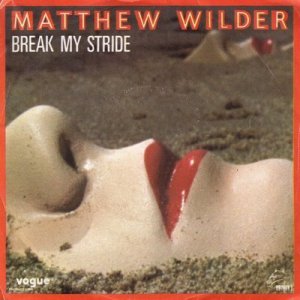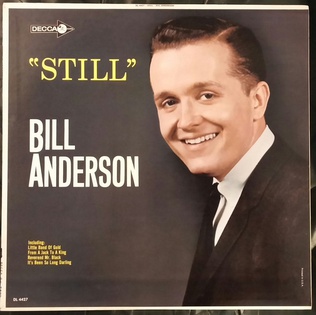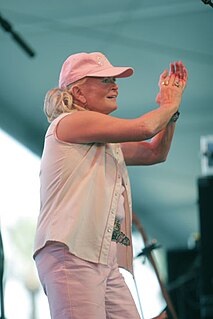Related Research Articles
Cheryl Lau Sang, known professionally as Samantha Sang, is an Australian singer. She had an earlier career as a teenage singer under the stage name Cheryl Gray, before adopting the stage name she is more widely known as in 1969. She first received nationwide recognition in Australia in 1967, after releasing the top ten single "You Made Me What I Am".

"Someday We'll Be Together" is a song written by Johnny Bristol, Jackey Beavers, and Harvey Fuqua. It was the last of twelve American number-one pop singles for Diana Ross & the Supremes on the Motown label. Although it was released as the final Supremes song featuring Diana Ross, who left the group for a solo career in January 1970, it was recorded as Ross' first solo single and Supremes members Mary Wilson and Cindy Birdsong do not sing on the recording. Both appear on the B-side, "He's My Sunny Boy".

"I'm Gonna Make You Love Me" is a soul song most popularly released as a joint single performed by Diana Ross & the Supremes and The Temptations for the Motown label. This version peaked for two weeks at #2 on the Hot 100 in the United States, selling 900,000 copies in its first two weeks, and at #3 on the UK Singles Chart in January 1969.

"Beautiful Life" is a song by Swedish band Ace of Base, released on 24 October 1995. In North America, it was the first single released from The Bridge; in Europe, it followed "Lucky Love". It proved quite successful worldwide, reaching number 15 on the Billboard Hot 100 and the UK Singles Chart in December 1995. In 2017, BuzzFeed listed the song at number 51 in their list of "The 101 Greatest Dance Songs Of the '90s".

"Break My Stride" is a song performed by American recording artist Matthew Wilder. It was released in 1983 as the lead single from his debut album, I Don't Speak the Language, and became a major hit single for him in 1983 and 1984.

"Get Rhythm" is a song written and recorded by American singer-songwriter and musician Johnny Cash. It was originally released as the B-side to the single release "I Walk the Line" in 1956 on Sun 241. It was re-released with overdubbed "live" effects in September 1969 as an A-side single and reached number 60 on the Billboard Pop chart.

"Baby, Now That I've Found You" is a song written by Tony Macaulay and John MacLeod, and performed by the Foundations. Part of the song was written in the same bar of a Soho tavern where Karl Marx is supposed to have written Das Kapital. The lyrics are a plea that an unnamed subject not break up with the singer.

"Polk Salad Annie” is a 1968 song written and performed by Tony Joe White. Its lyrics describe the lifestyle of a poor rural Southern girl and her family. Traditionally, the term to describe the type of food highlighted in the song is polk or poke sallet, a cooked greens dish made from pokeweed. Its 1969 single release peaked at No. 8 on the Billboard Hot 100. In Canada, the song made No. 10 on the RPM Magazine Hot Singles chart. Elvis Presley's version also made the song popular.

Steve Wariner is an American country music singer, songwriter and guitarist. His discography comprises nineteen studio albums, six compilation albums and fifty-five singles. Of his studio albums, three are certified gold by the Recording Industry Association of America (RIAA) for shipments of 500,000 copies each: 1991's I Am Ready, and Burnin' the Roadhouse Down and Two Teardrops from 1998 and 1999 respectively. I Am Ready was Wariner's first release for Arista Nashville following tenures on RCA and MCA Nashville, and Burnin' the Roadhouse Down his first for Capitol Records.

"Daddy Sang Bass" is a song written by Carl Perkins, with lines from the chorus of "Will the Circle Be Unbroken?", and recorded by American country music singer Johnny Cash. It was released in November 1968 as the first single from the album The Holy Land. The song was Cash's sixty-first release on the country chart. The song went to No. 1 on the Billboard country chart for 6 weeks and spent a total of 19 weeks on the chart. The single reached No. 56 on the Cashbox pop singles chart in 1969. "Daddy Sang Bass" was also released on the Columbia Records Hall of Fame Series as a 45, #13-33153, b/w "Folsom Prison Blues". The record was nominated in the CMA awards category of Single of the Year by the Country Music Association (CMA) in 1969.

"Love Really Hurts Without You" is a song recorded by British R&B recording artist Billy Ocean. The song – written by Ocean under his real name Leslie Charles with the track's producer Ben Findon – was the second single recorded in the name Billy Ocean and provided Ocean with his first chart record in 1976.
Willie Clayton is an American Chicago blues and soul-blues singer and songwriter. He has recorded over 25 albums since the 1980s. He has been performing since the late 1960s. His chart successes span the decades from the 1980s onward.
"Long Lonely Nights" is a song that was originally released by Lee Andrews & the Hearts in 1957. Hit versions were also released by Clyde McPhatter, later in 1957, and Bobby Vinton in 1965. The song was written by Lee Andrews, though Larry Brown, Doug Henderson, and Mimi Uniman were given songwriter credit as well, in a practice that was common at the time.
"Goodbye Little Darlin', Goodbye" is a song co-written and originally recorded by Gene Autry. Autry sang it in the 1939 movie South of Border. and in April 1940 released it on a 78 rpm record

Still is a studio album by American country singer-songwriter Bill Anderson. It was released on June 17, 1963 on Decca Records and was produced by Owen Bradley. Still was Anderson's debut studio album as a recording artist after recording several singles for the Decca label. Two singles were included in the album. Its most successful was the title track, which became a crossover hit in 1963. It reached positions on the Billboard country, pop and adult contemporary charts. The album itself would also reach peak position on Billboard charts.

A Place in the Country is a studio album by American country singer-songwriter Bill Anderson. It was released in 1986 and was produced by Mike Johnson. The album marked Anderson's 33rd studio recording to be issued during his career. It was also his third independent studio album to be released. It also included three singles that were released and became charting singles on the Billboard country survey.

The singles discography of American country music artist Lynn Anderson contains 72 singles, three promotional singles, one charting B-side, two music videos and nine other song appearances. She signed her first recording contract with Chart Records in 1966. The following year, her single "Ride, Ride, Ride" debuted on the Billboard Hot Country Singles chart. Also in 1967, her single "If I Kiss You " became her first major hit when it reached number five on the country singles chart. Anderson had a series of hits that reached the top ten and 20 during the 1960s including "Promises, Promises" (1969), "No Another Time" (1968), "Big Girls Don't Cry" (1968) and "That's a No No" (1969).
"No Love at All" is a song written by Johnny Christopher and Wayne C. Thompson. It was recorded by American country music artist Lynn Anderson and released as a single in June 1970 via Columbia Records.

Stay There 'Til I Get There is a studio album by American country artist Lynn Anderson. It was released in May 1970 on Columbia Records and was produced by Glenn Sutton. The album was Anderson's eighth studio recording as a music artist and was her first album for the Columbia label. The album's title track was released as a single and became her fifth top ten hit on the Billboard country chart. The album itself would also chart on a similar country survey.
"Even Cowgirls Get the Blues" is a song written by Rodney Crowell. It has since been covered by several artists, notably La Costa, Emmylou Harris and Lynn Anderson. Crowell claims to have written "Even Cowgirls Get The Blues" about Harris and her pal Susanna Clark. The title of the song is taken from the then-popular novel of the same name by author Tom Robbins. The song has been released as a single twice and has also has appeared on albums of various artists.
References
- 1 2 3 Whitburn, Joel (2008). Hot Country Songs 1944 to 2008. Record Research, Inc. p. 122. ISBN 0-89820-177-2.
- 1 2 Vinopal, David. "Martin Delray biography". Allmusic . Retrieved November 24, 2007.CS1 maint: discouraged parameter (link)
- ↑ Thomas, Ronnie (May 4, 2006). "A minute with Martin Delray". The Decatur Daily. Retrieved March 26, 2010.CS1 maint: discouraged parameter (link)